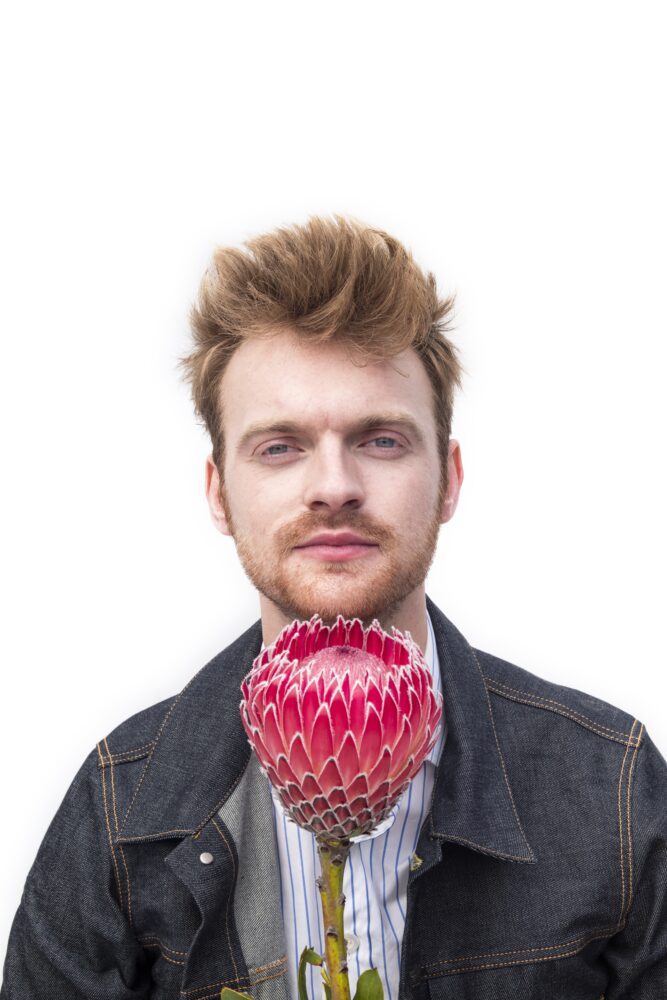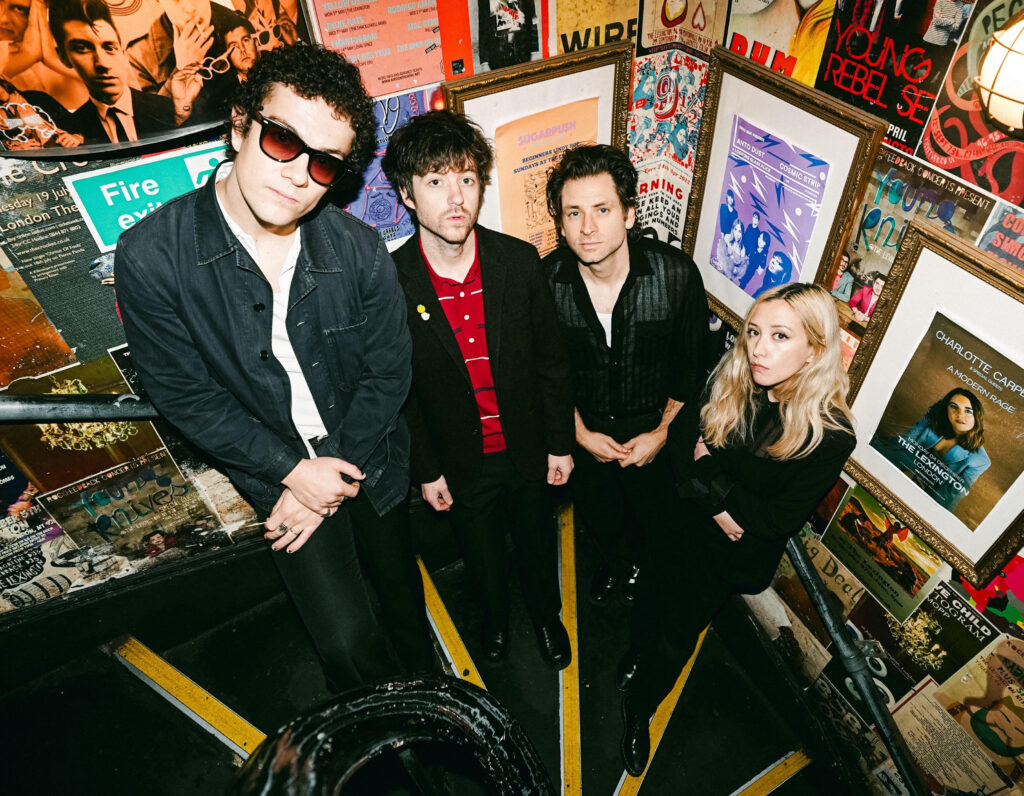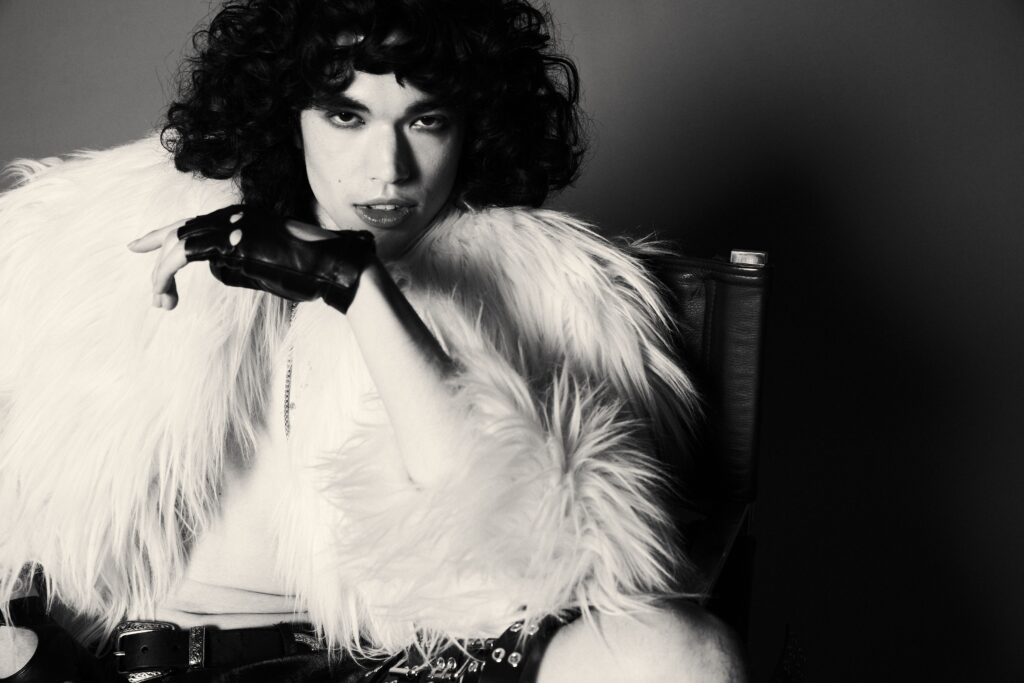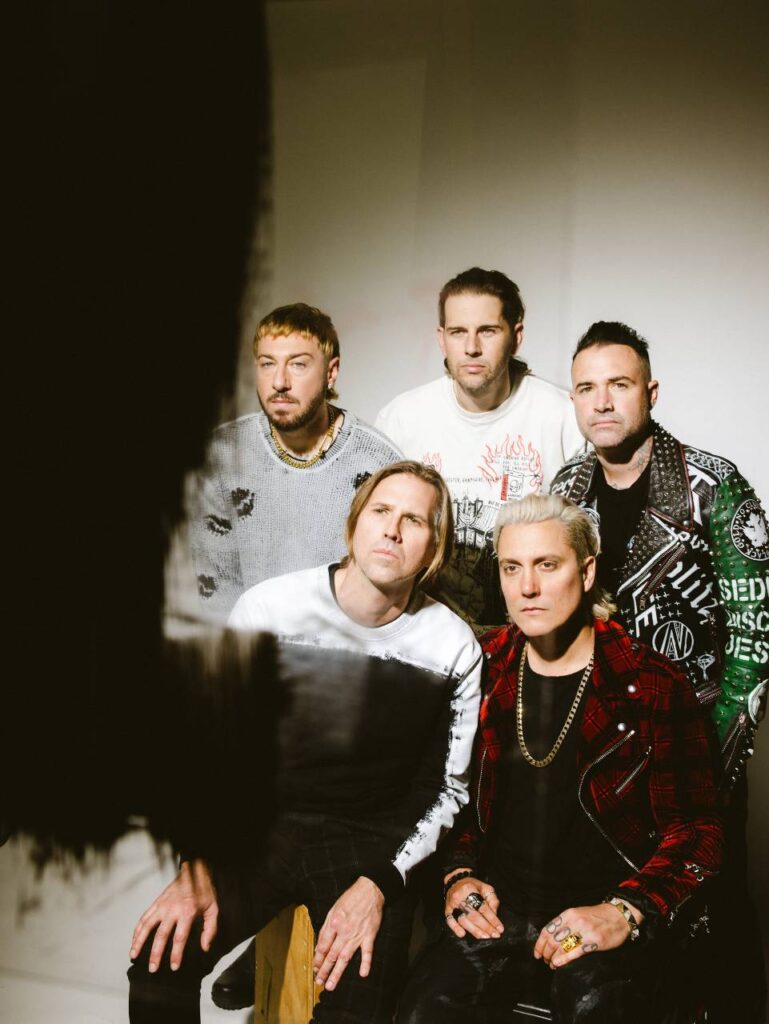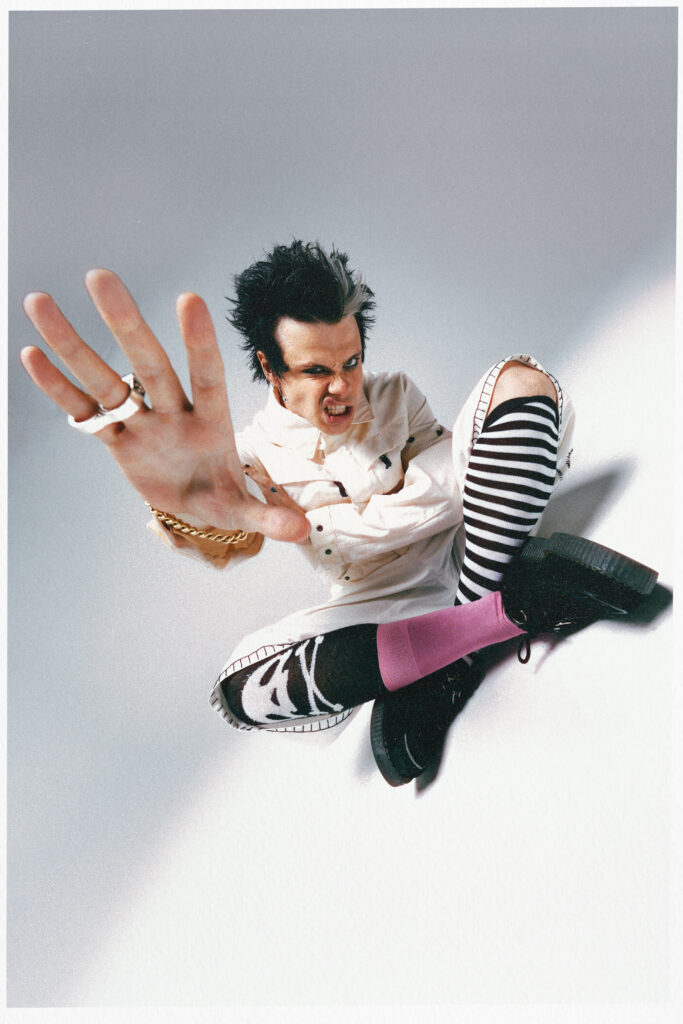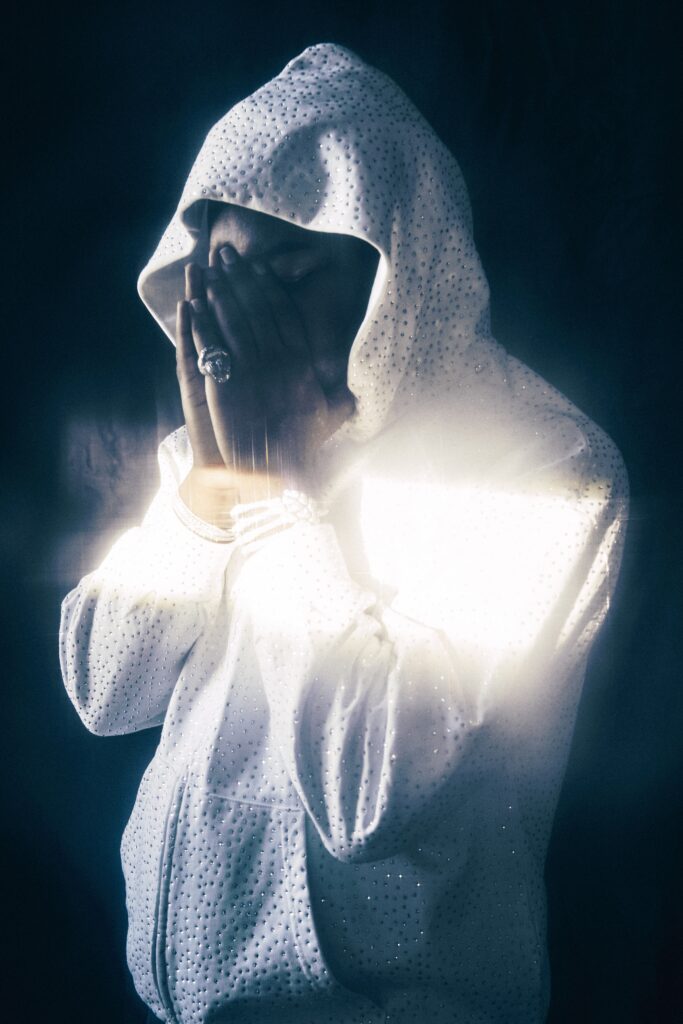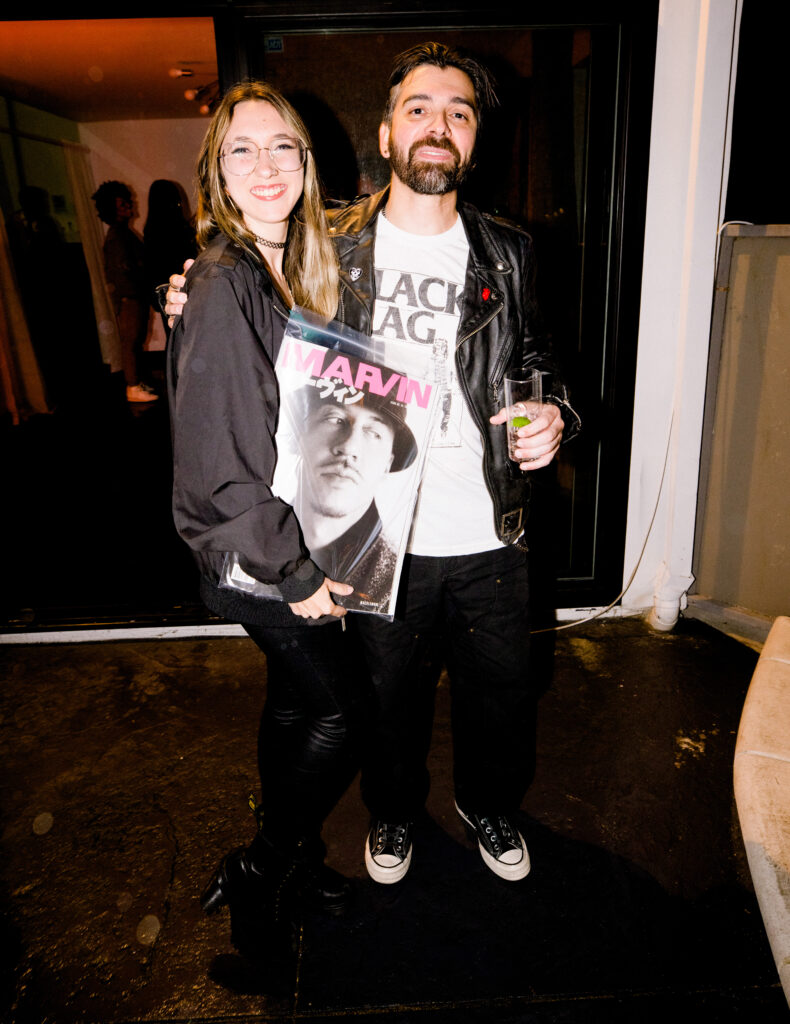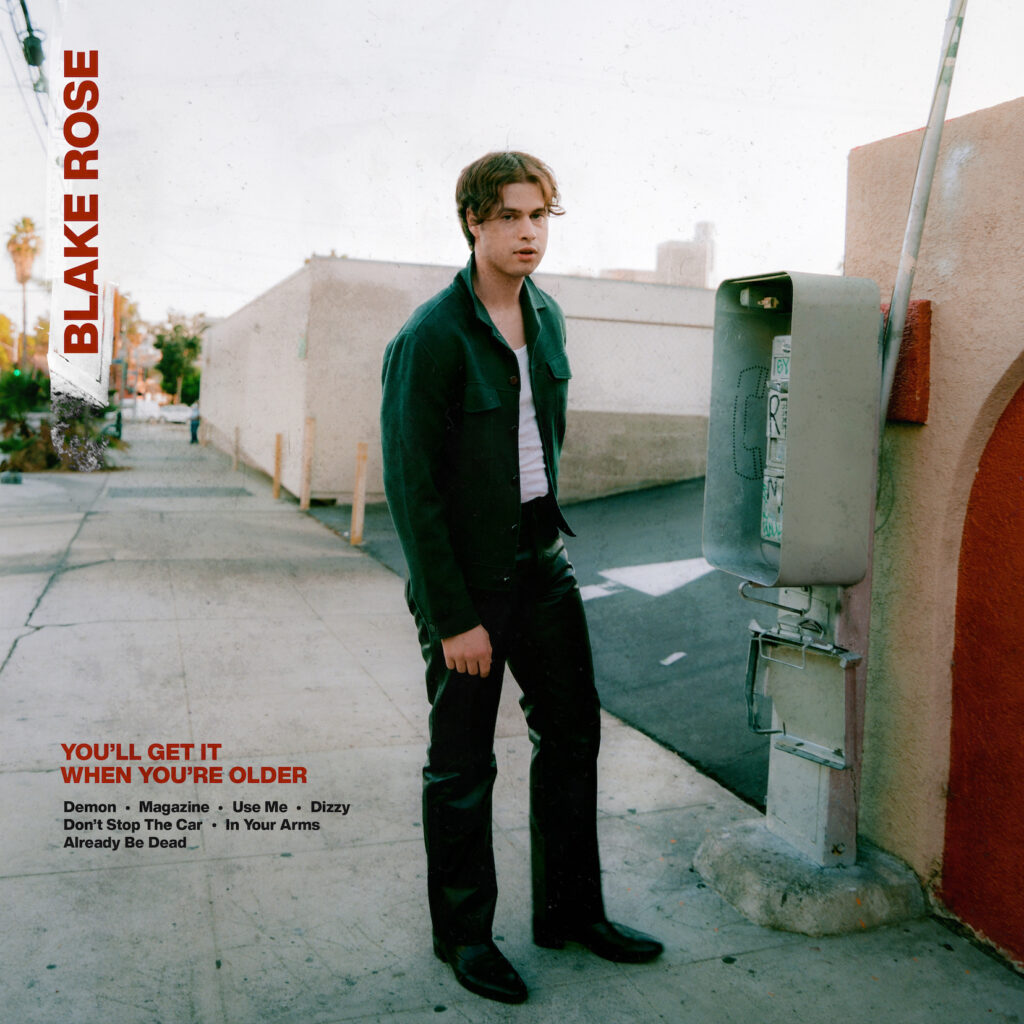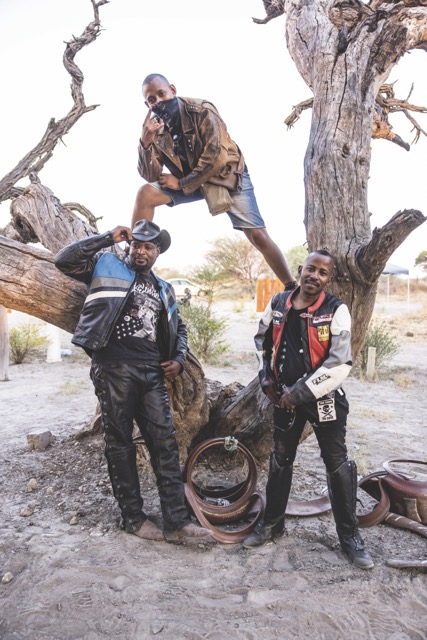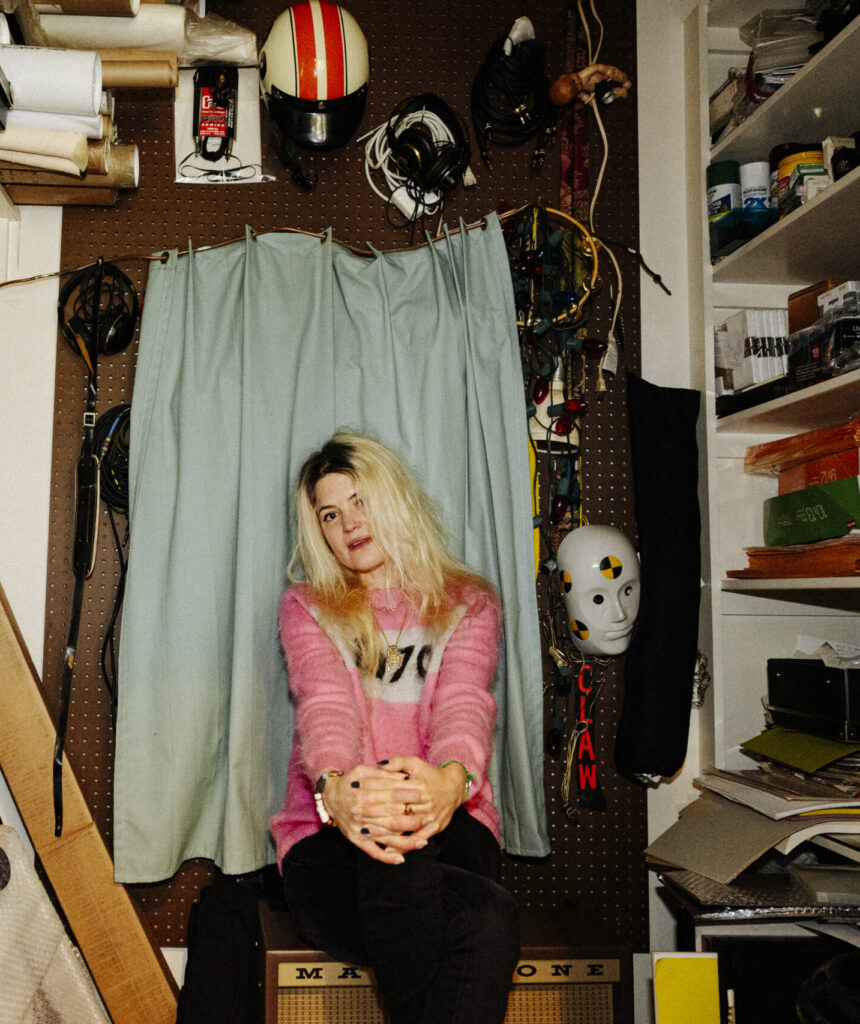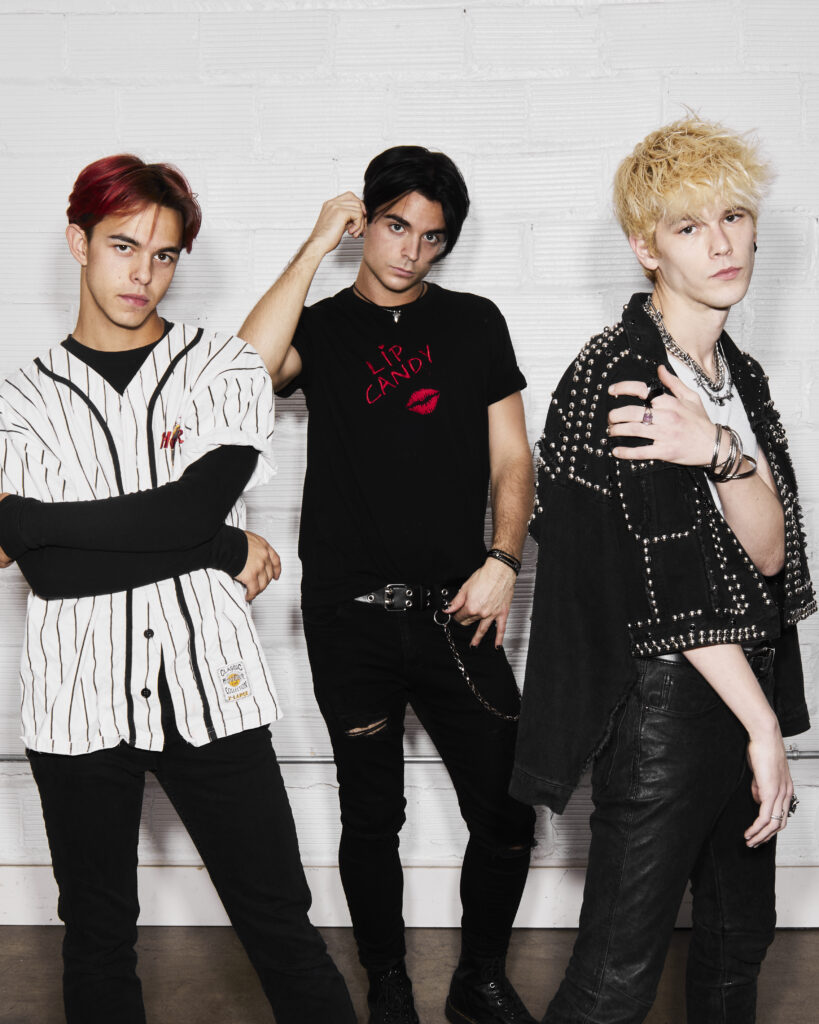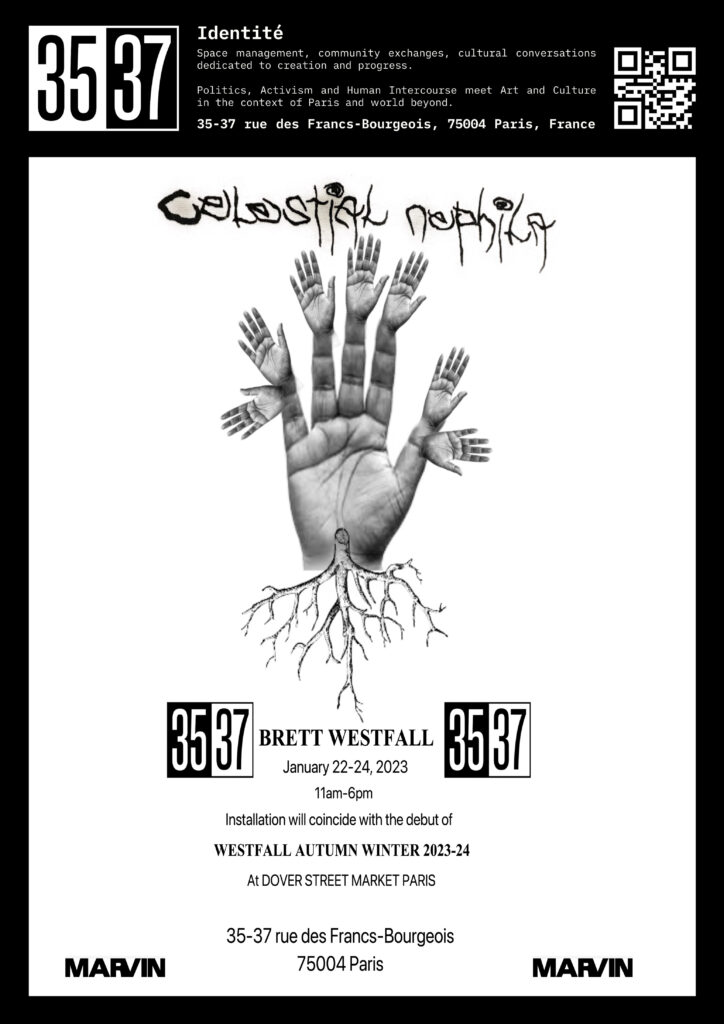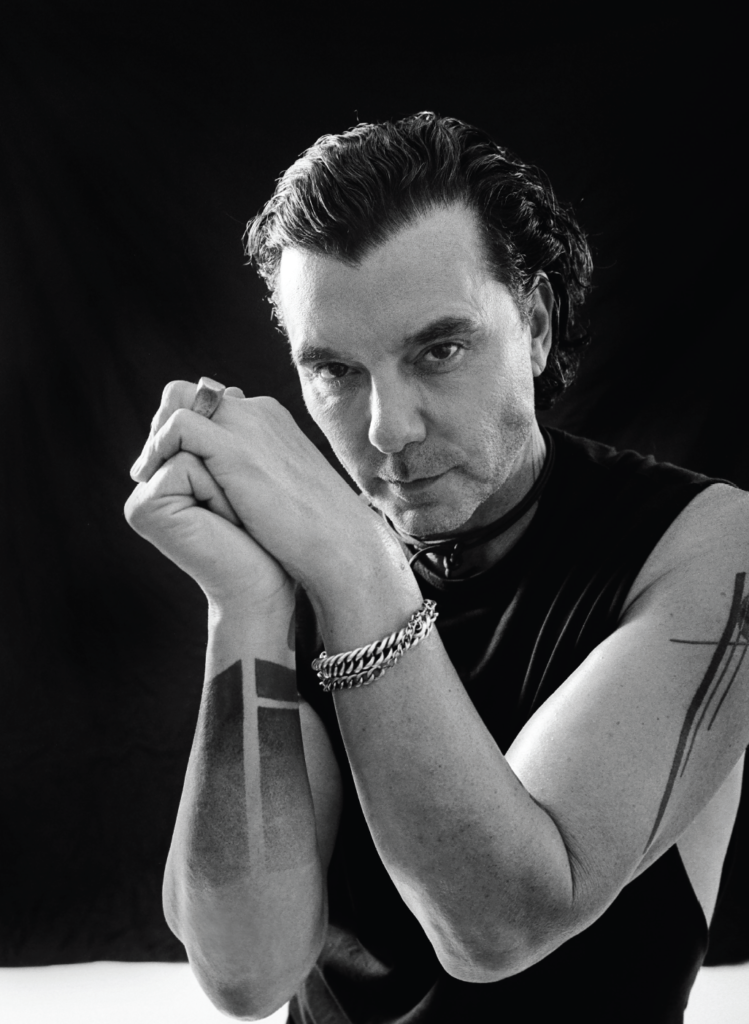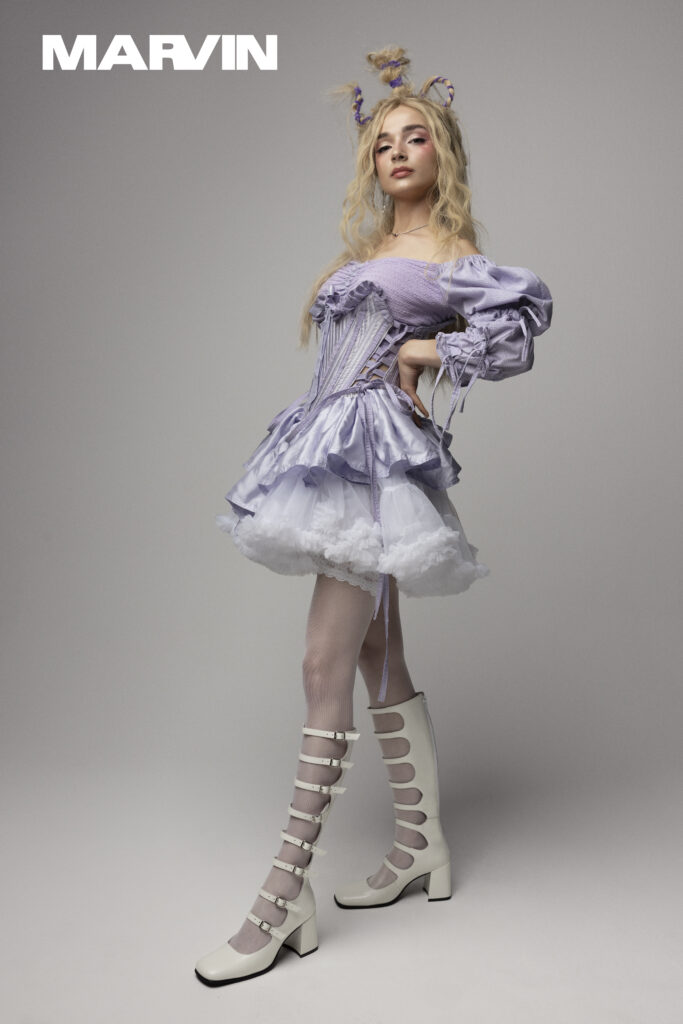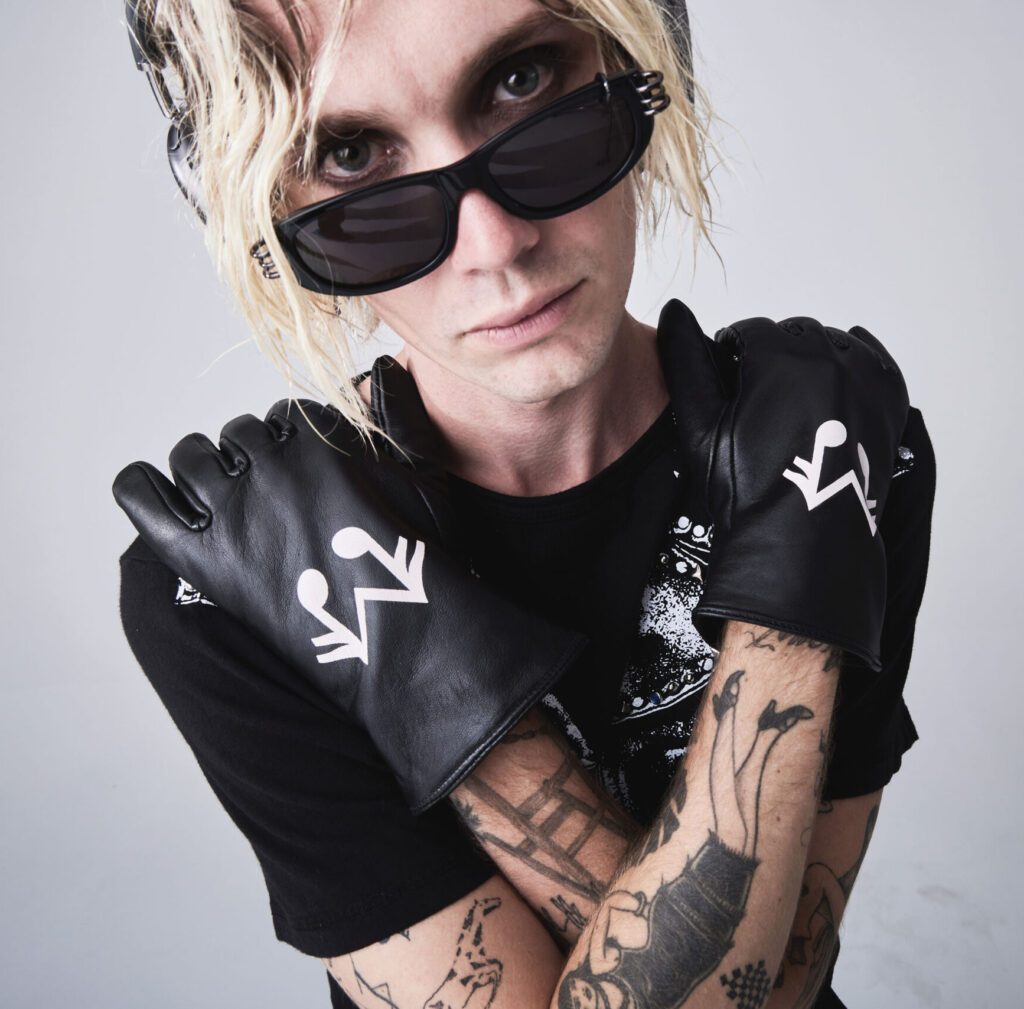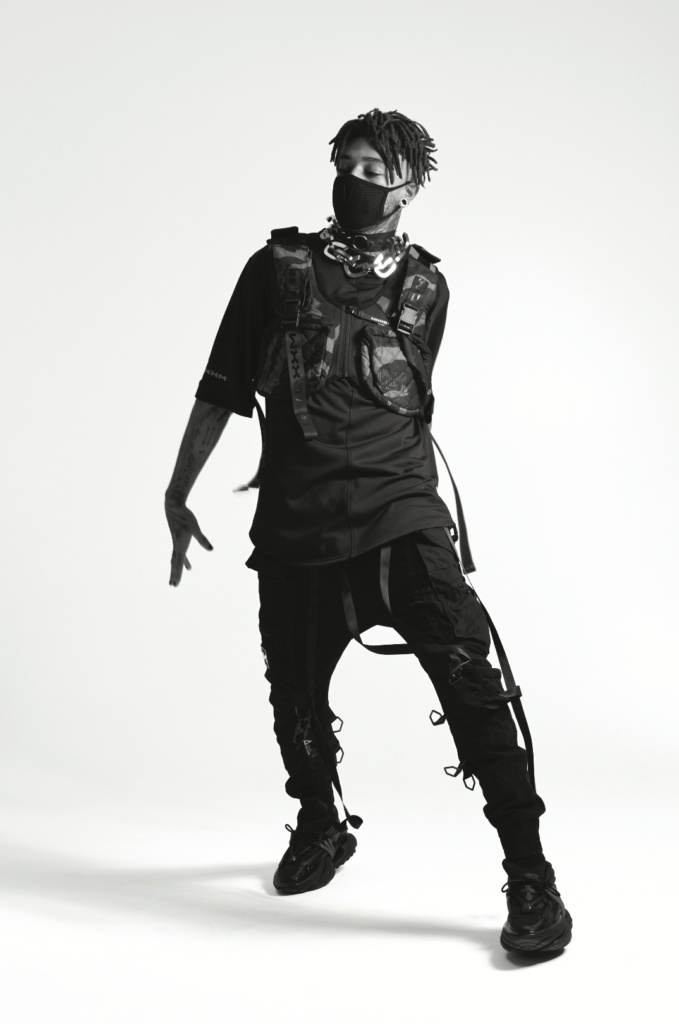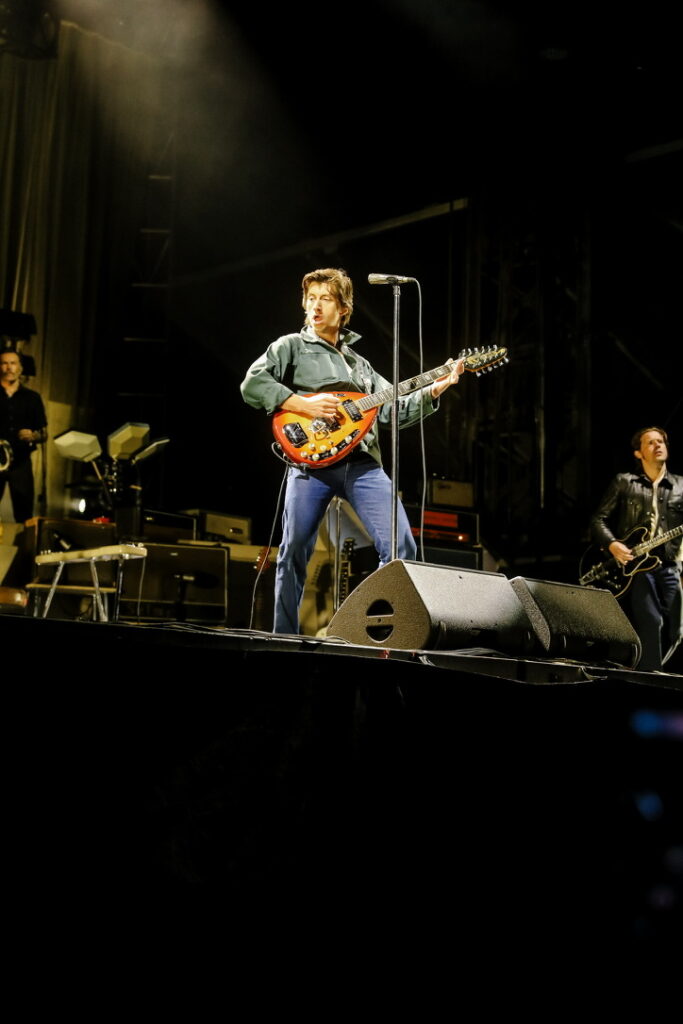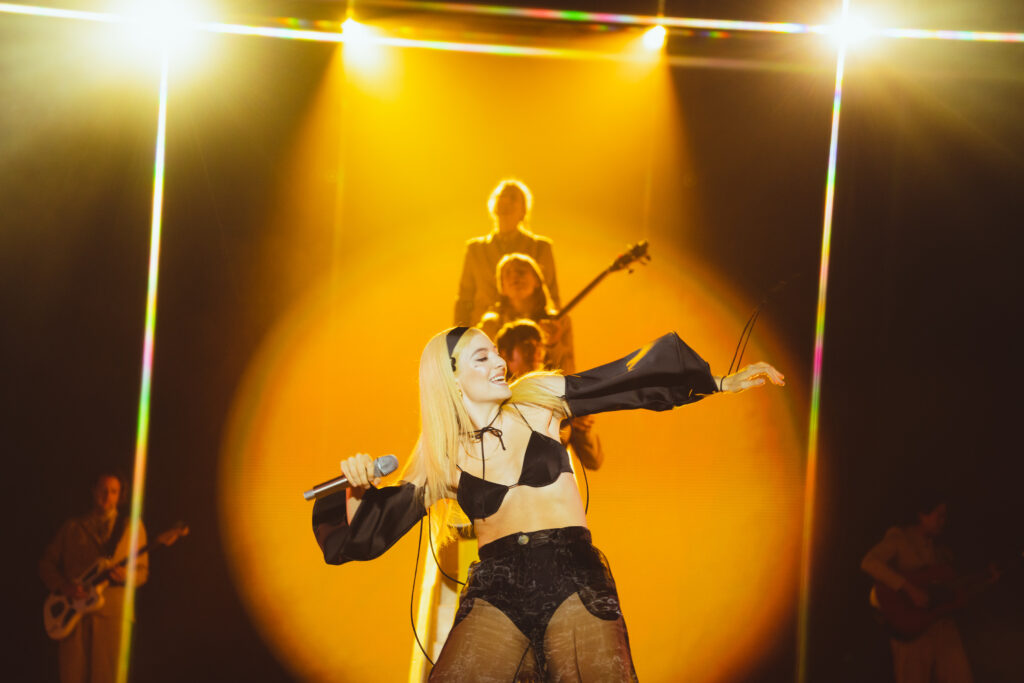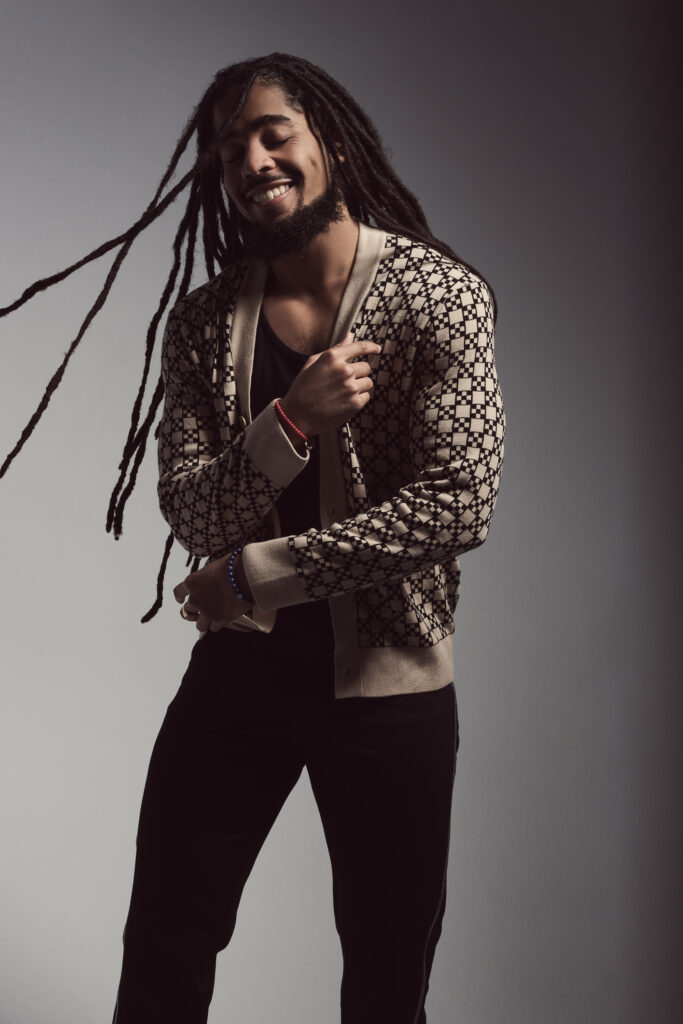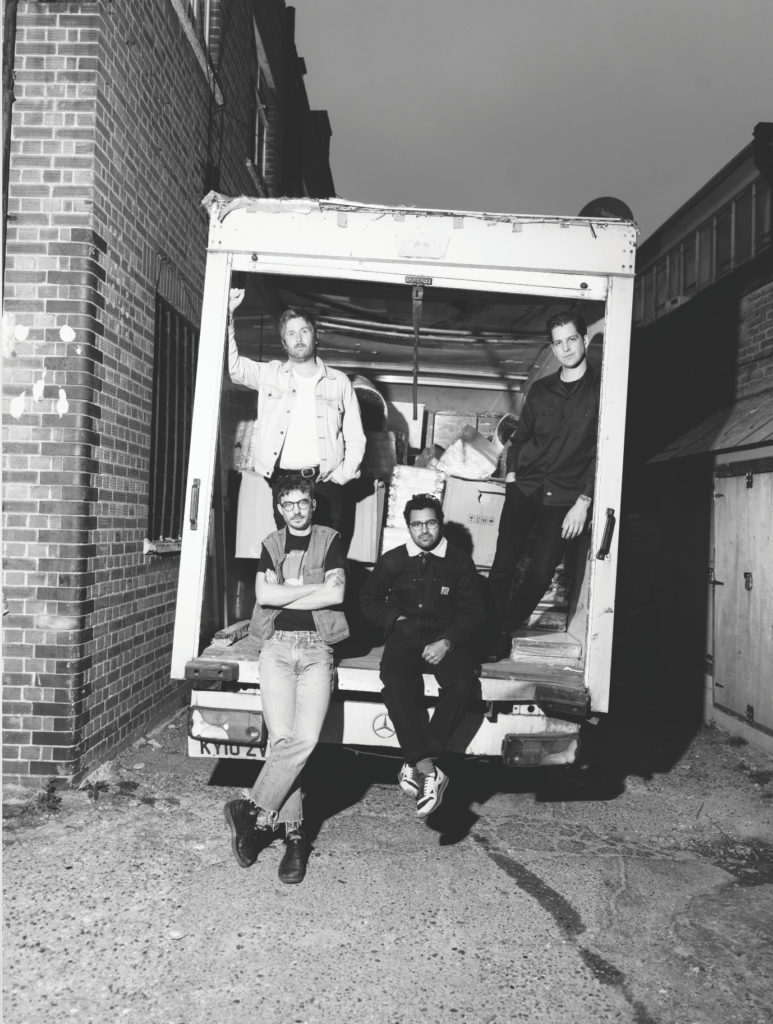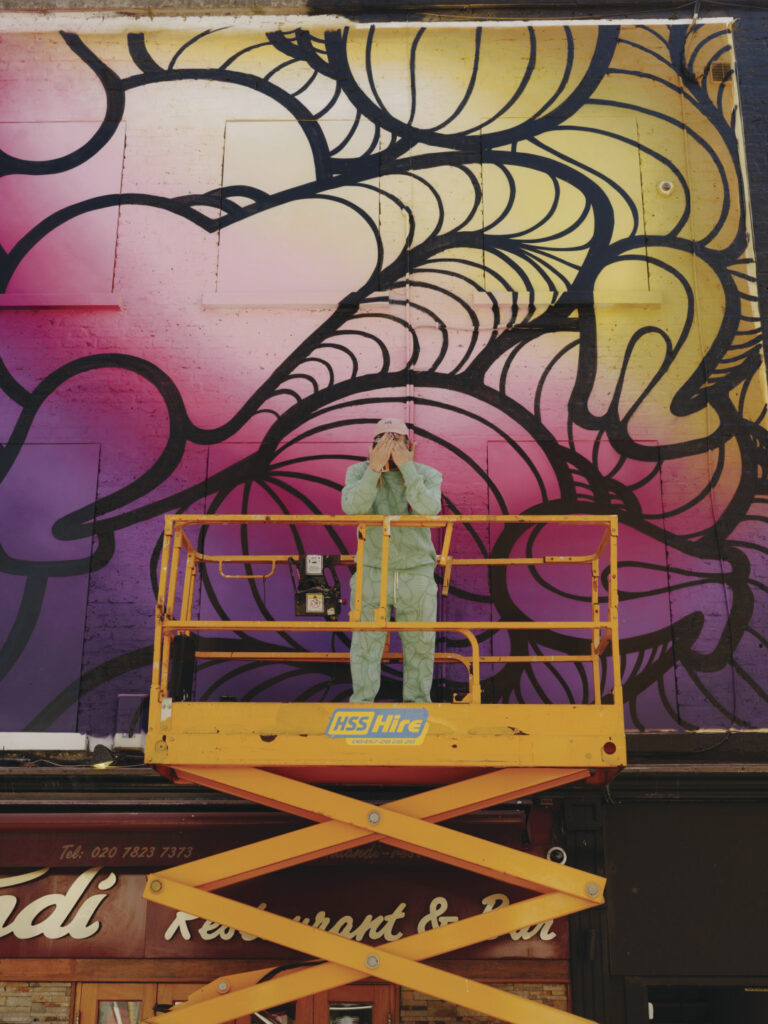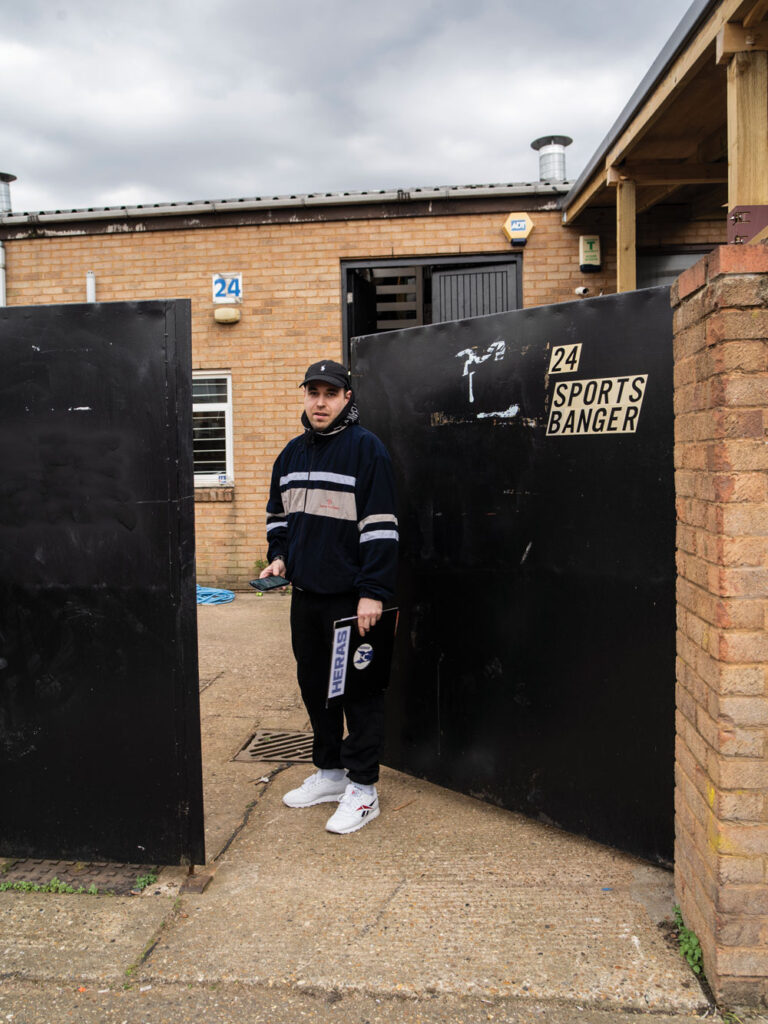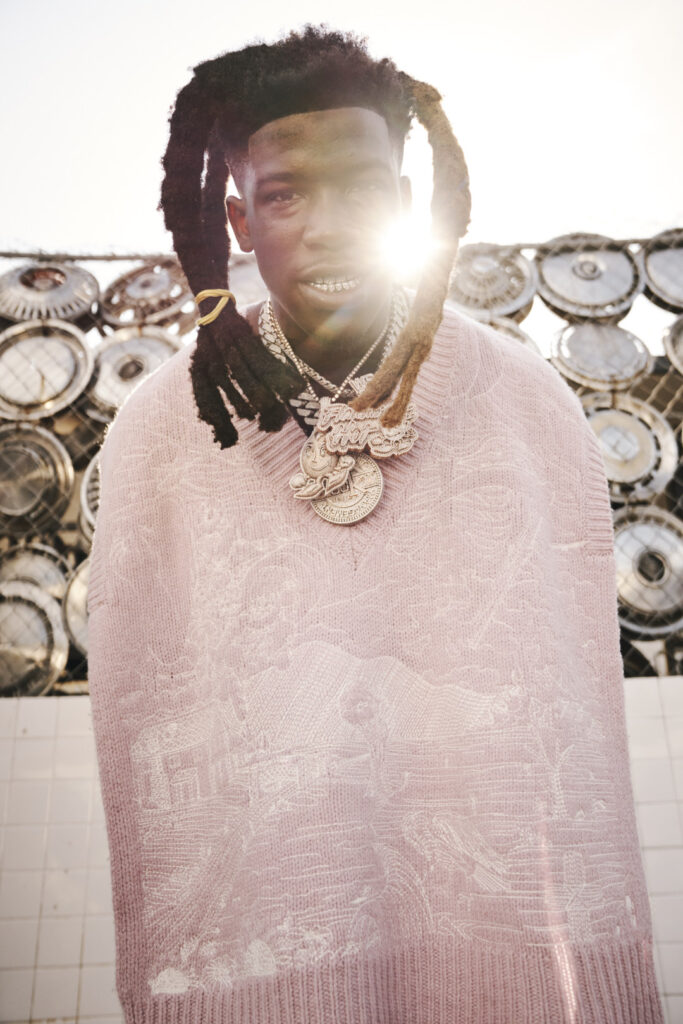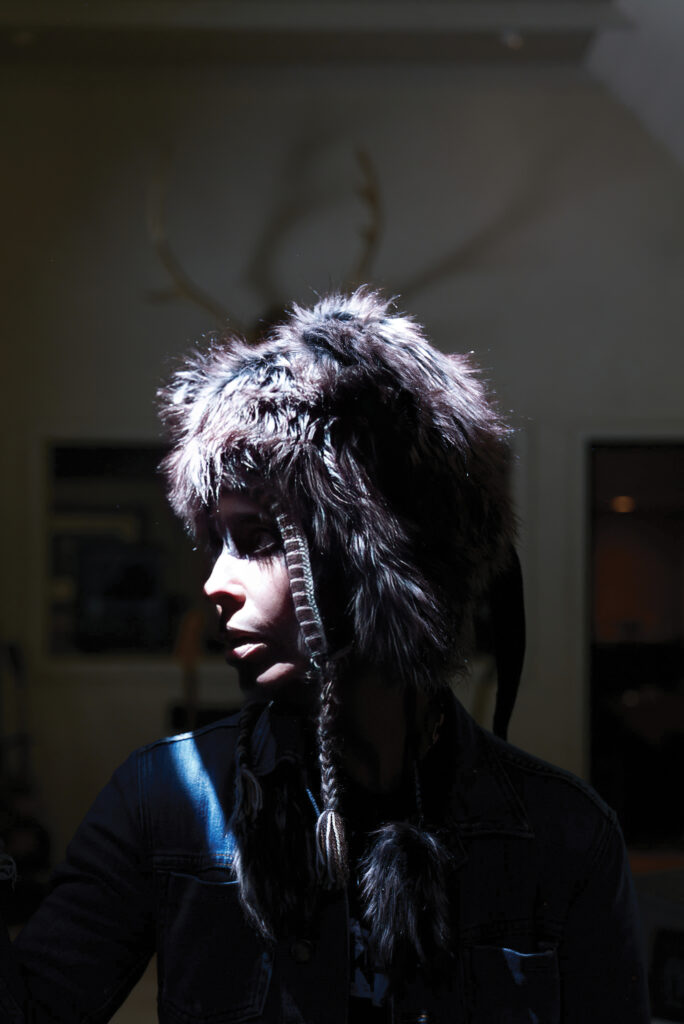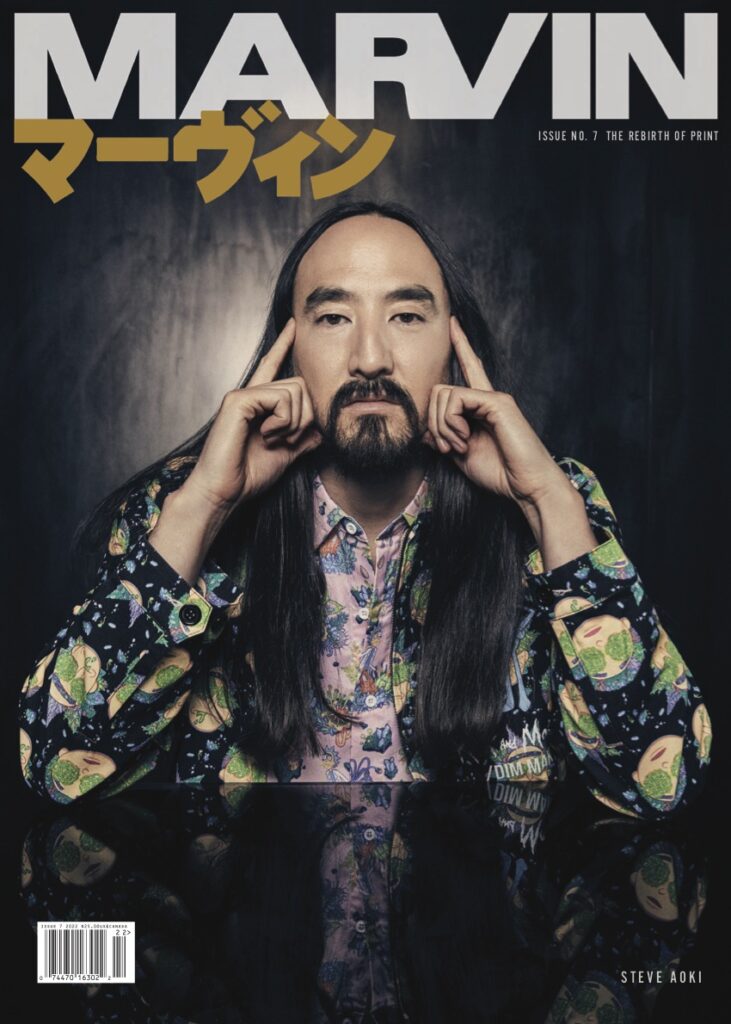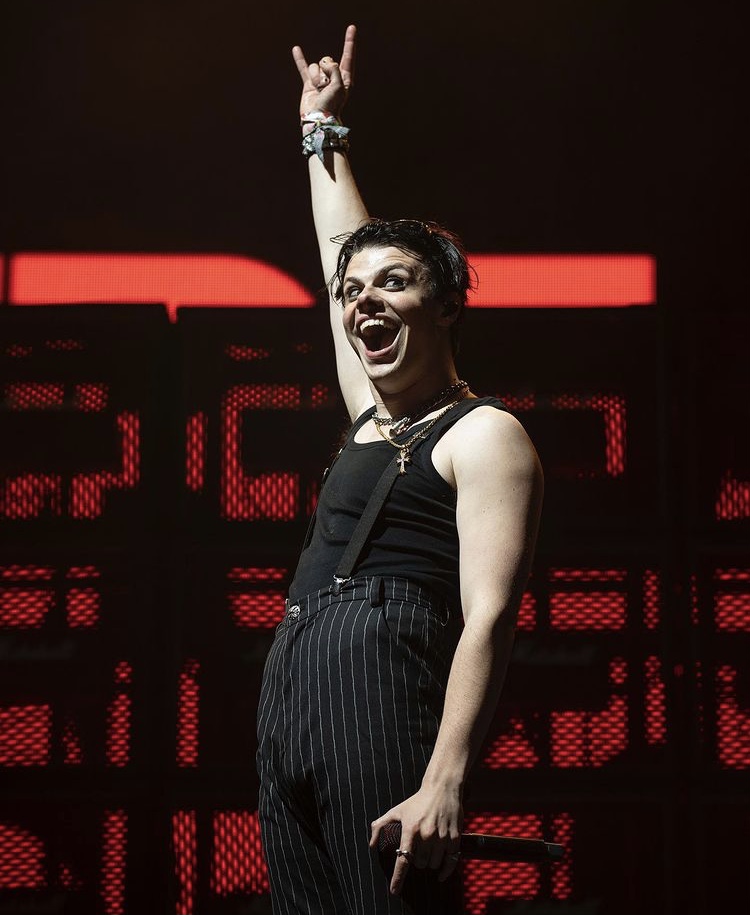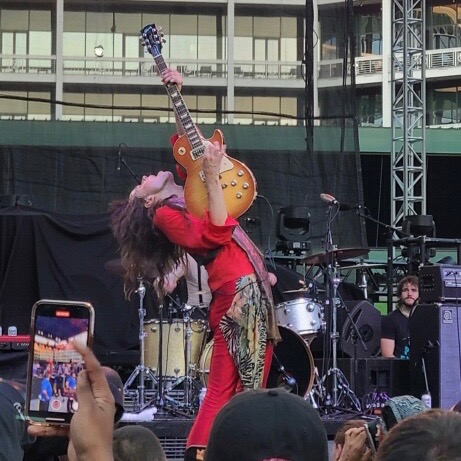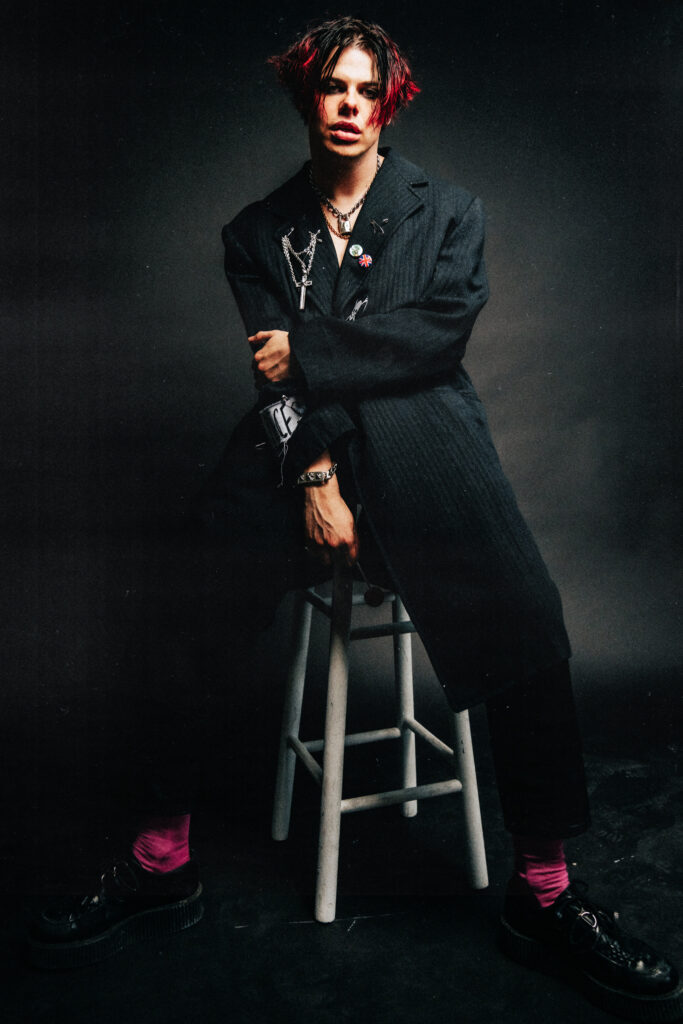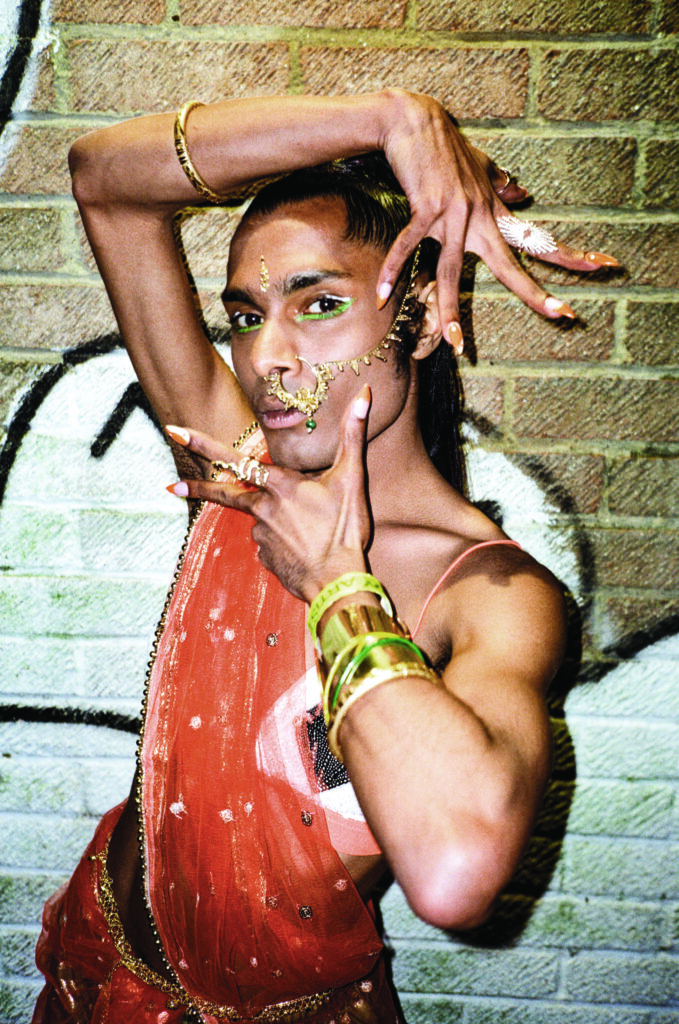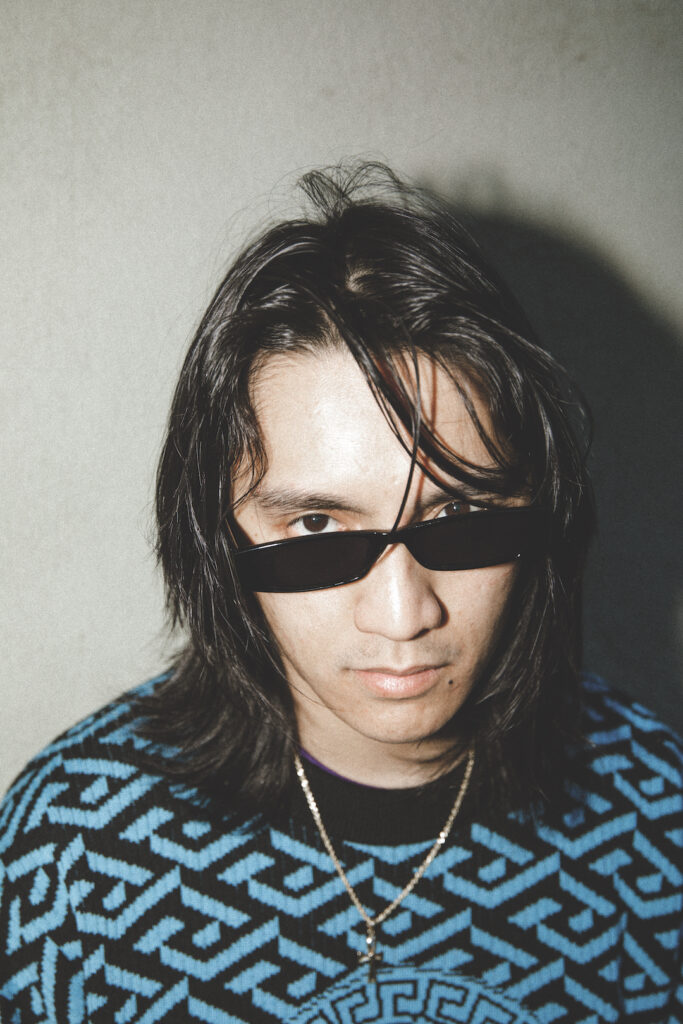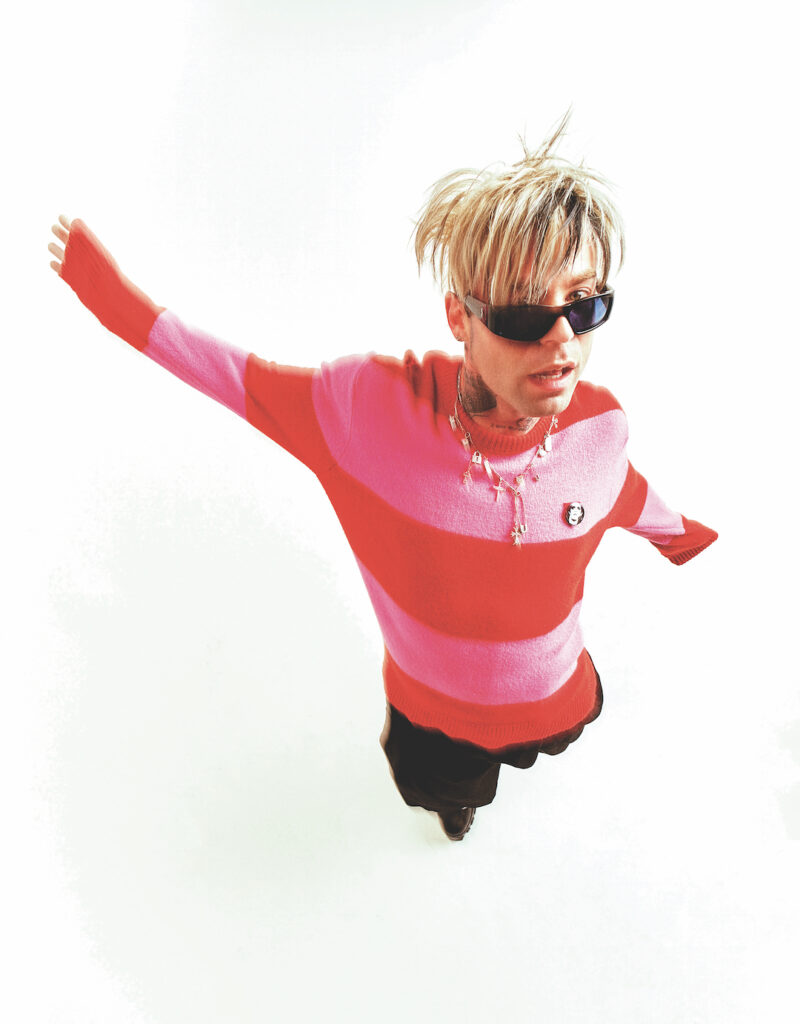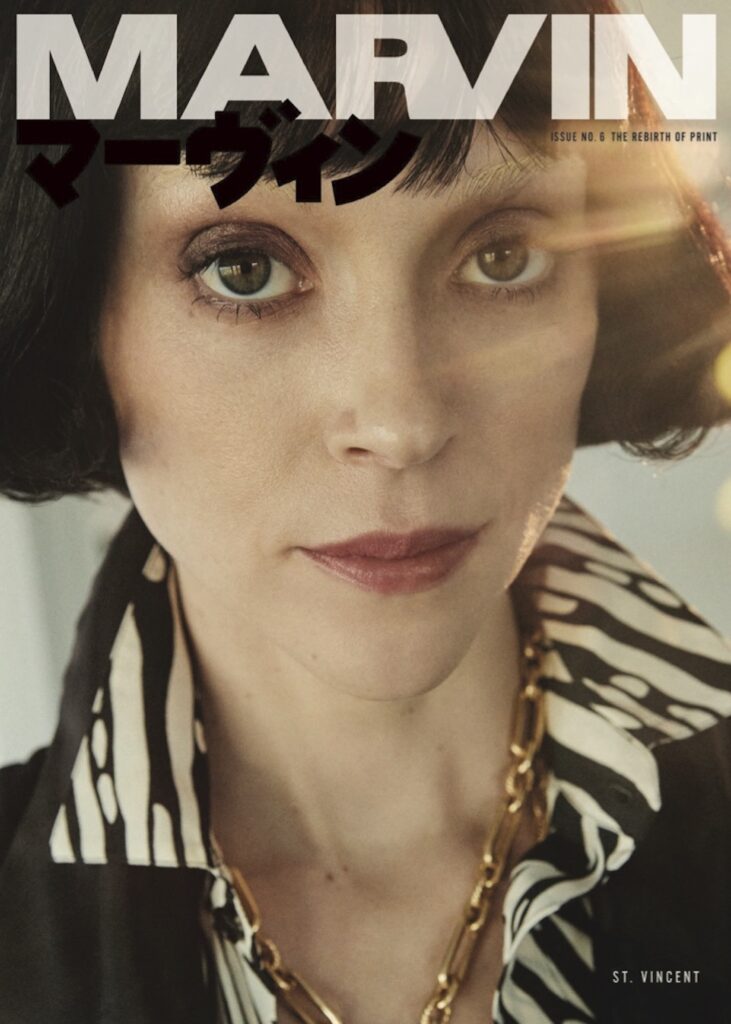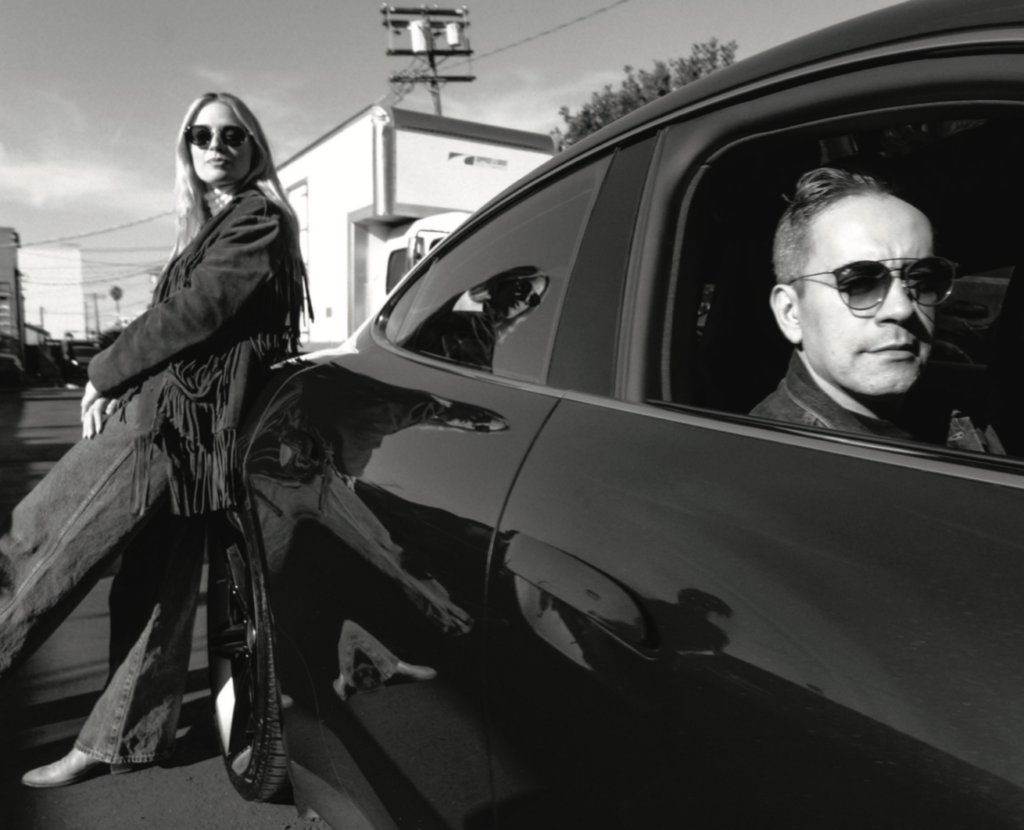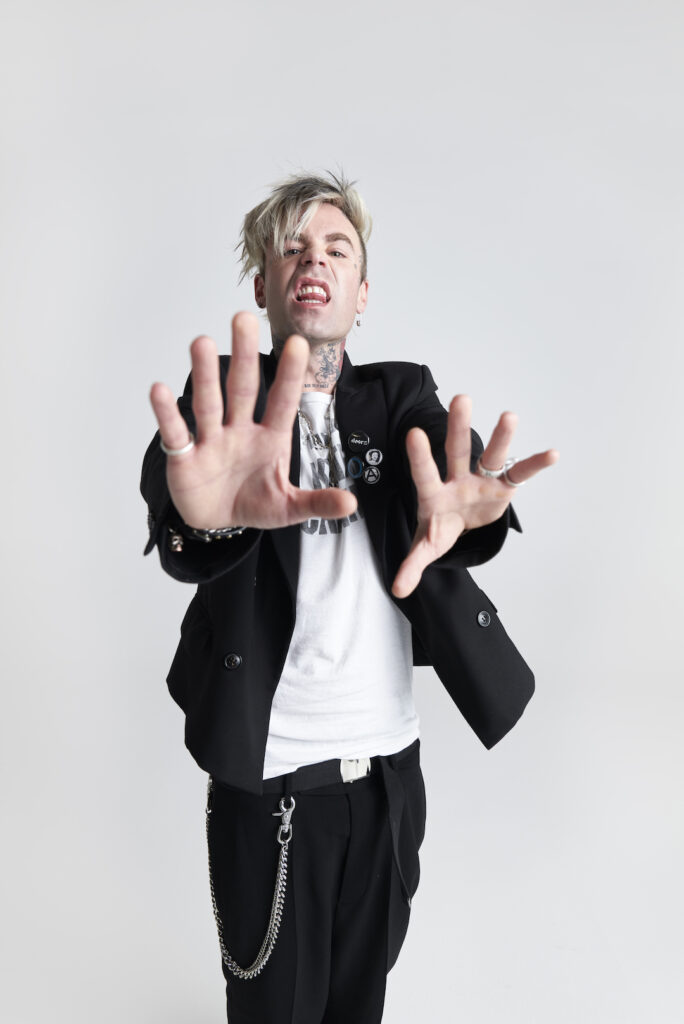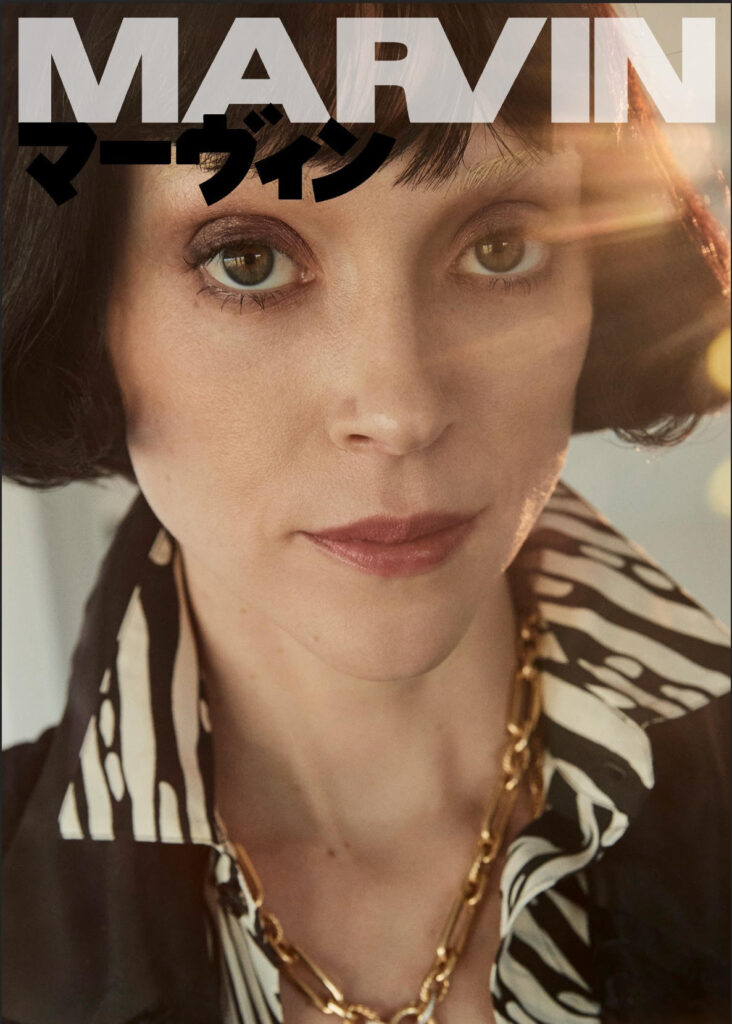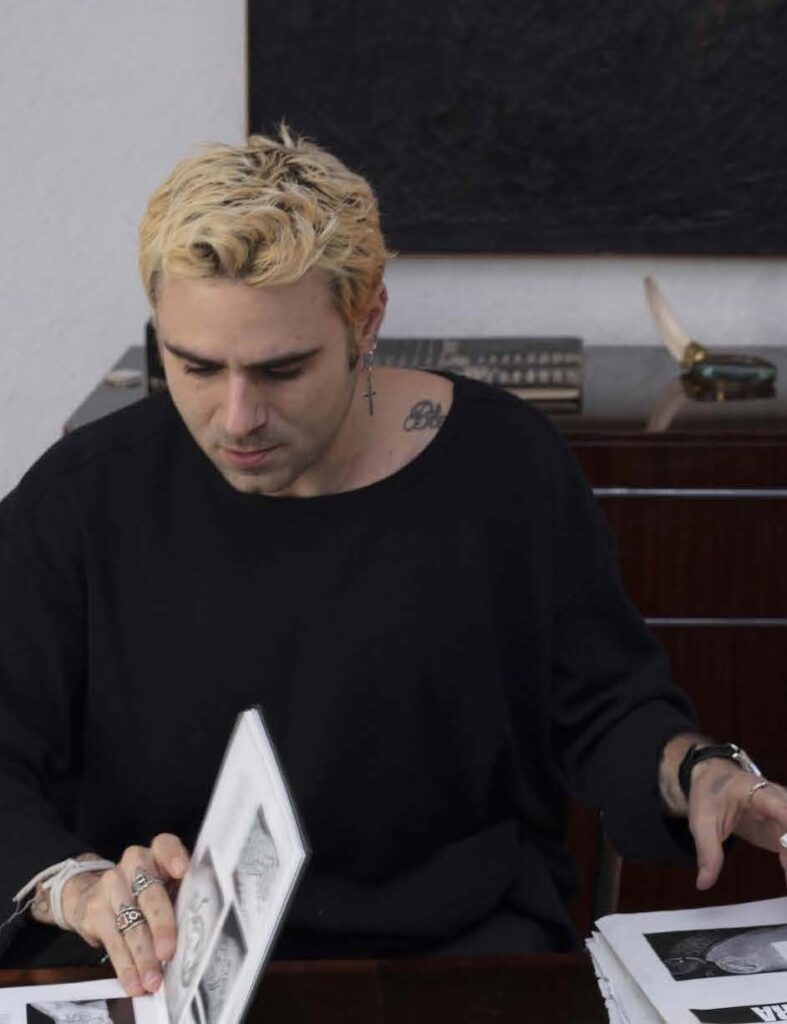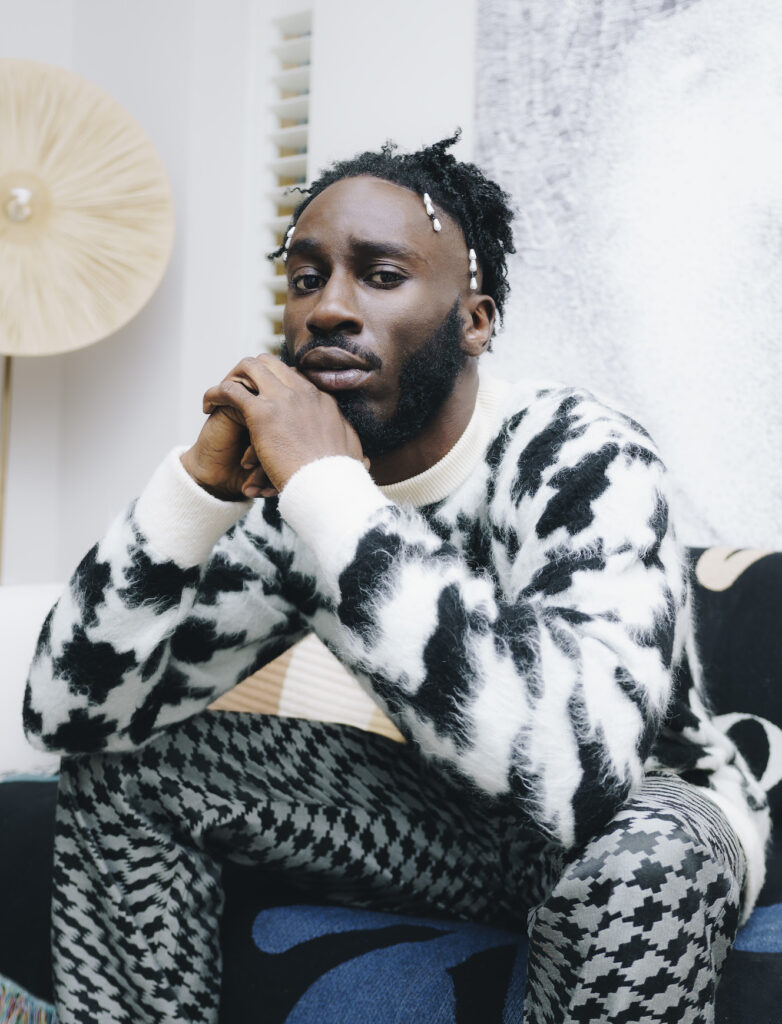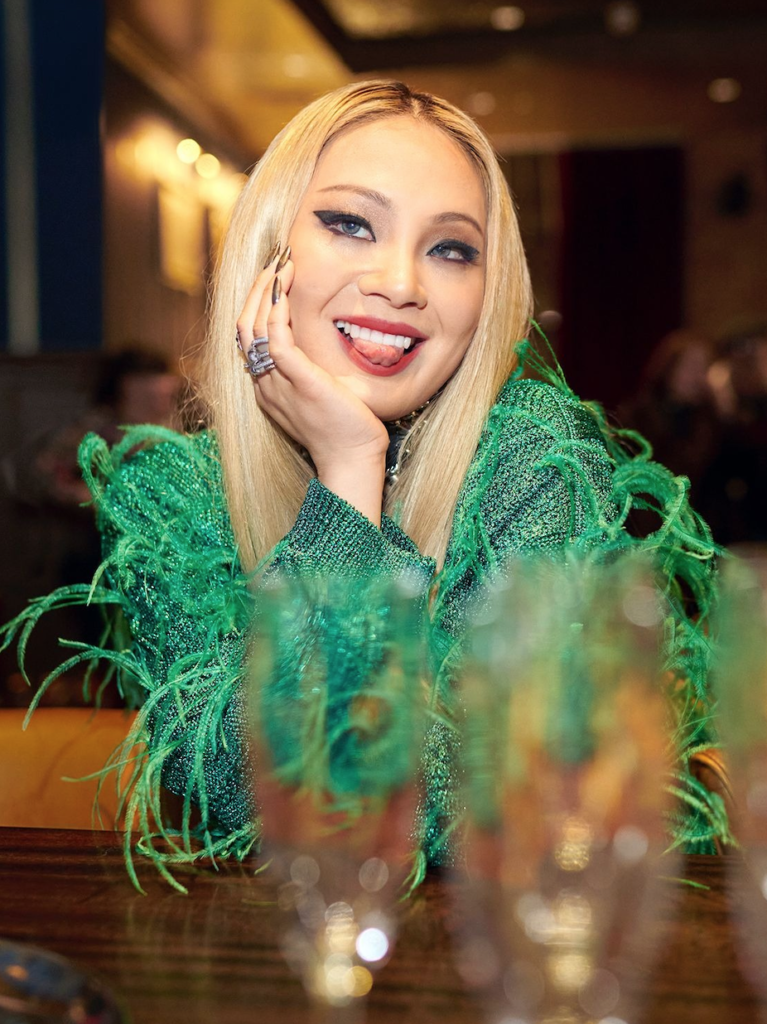Finneas O’Connell Talks Writing with Others and For Himself on His Debut Album
Photography by Christian Witkin
Styling by Anton Schneider
Hair & Grooming by Rob Rumsey
It’s the morning after the 2021 Grammys, and Finneas O’Connell is right where he’s supposed to be: at home in his studio. O’Connell makes music because that is the source of his joy. His studio in LA is a far cry from the bedroom space he lived in, in Eastside Los Angeles next to his sister Billie Eilish for his first 21 years. In that bedroom, he co-wrote and produced Eilish’s globe-conquering, record-breaking, generation-defining debut album, WHEN WE FALL ASLEEP, WHERE DO WE GO? At last year’s Grammys, O’Connell and Eilish took home five Grammys, including the four most coveted categories. As loved as the pair are by the establishment, they’re even more idolized by an ever-expanding army of listeners. This year’s ceremony continued the siblings’ winning streak. They took home two awards; one for their song “No Time To Die”, the coveted title track to the next Bond film, and another for Record Of The Year, thanks to Eilish’s hit “everything I wanted.”
At the beginning of the music video for “everything I wanted” is a message to O’Connell: “finneas is my brother and my best friend. No matter the circumstance, we always have and always will be there for each other.”
In the video, Eilish is driving along a futuristic doomsday highway, with O’Connell in the passenger seat. He doesn’t object, calmly filling the space in her otherwise solo vehicle, neither detracting from her attention, nor abandoning her to manage it alone. Eilish and O’Connell’s closeness is an aspect of the Eilish universe that keeps the most punk pop star of Gen Z staying somehow wholesome. That’s been one of
the most common takeaways from the recently released [R.J. Cutler] documentary, Billie Eilish: The World’s A Little Blurry, which follows her stratospheric rise over the course of the past two years, and more specifically the intricacies of the family dynamic that keep a teenage megastar healthy and in check.
For O’Connell the release of the documentary has signified the closing of a chapter. Immensely proud of his work with Eilish, he is also making a name for himself, with his own solo material (he released an EP last year, Blood Harmony) and as the go-to up-and-coming producer in LA. He’s built a stupendous resume of collaborations during the time he’s had between touring with Eilish across continents and enormous stages. Not to mention making the follow-up to his sister’s definitive debut. He hasn’t actually seen the final cut of the movie. He saw an earlier version, which sufficed. “I felt like, ‘OK this is embarrassing, I hope everyone enjoys!’” he laughs. “I think I’ve seen most of it.”
It’s not that O’Connell doesn’t care. He’s always looking to the next thing, and he doesn’t enjoy self-congratulatory exercises. Sitting at his desk in a [My Chemical Romance] “MIKEY FUCKIN WAY” T-shirt, he’s a music fan first. Behind him is a gramophone. The acetate is from 1905. “Very old,” he says, segueing between music’s past and its future.
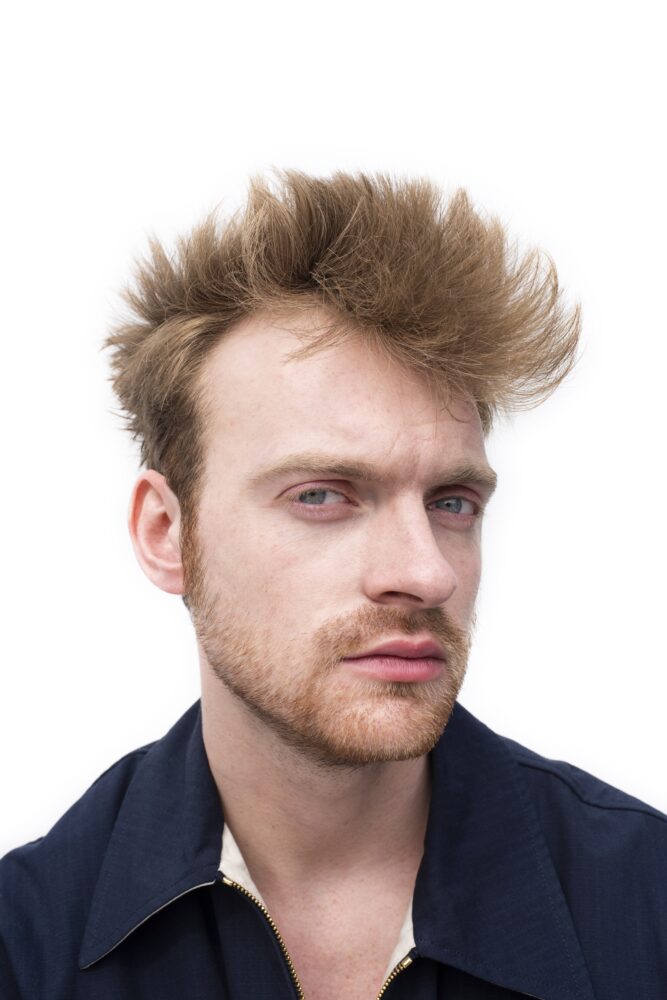
How were the Grammys?
Finneas O’Connell: Sunday was fun. Everyone I was rooting for, won. I would have been excited to see Doja [Cat] take home something too. I’m a huge fan of Megan Thee Stallion, I loved that Dua Lipa album, I thought Harry [Styles] deserved an award. He’s the most charming man on planet Earth. I was shocked to have won our thing [Record Of The Year] at the end of the night.
Winning Grammys has become a regular thing for you now…
I think Tom Hanks won an Oscar two years in a row, for Philadelphia and Forrest Gump. And the Academy said: ‘No more Tom Hanks! This is not interesting now.’ Which is hilarious because I think since, he’s done so many movies that are so worthy. So even if [Billie and I] put out our best work ever later, maybe the Grammys would say, “Oh it’s boring to see them win again.”
You tweeted “This summer is gonna feel so good.” What are you excited about?
You can imbue everything I say [on Twitter] with false Easter eggs. In that specific case all I was intimating was that if you want a vaccine by the summer you’ll have got it. We’ve been taking [the pandemic] as seriously as anybody so we haven’t seen most of our friends or relatives or travelled at all. I’m also affected by Seasonal Affective Disorder. I do better in the summer months. I should probably summer in Alaska where it’s light until four in the morning and winter on the opposite side of the planet in Australia.
The documentary just landed. What were you feeling before it came out?
I’m not good at documenting my life. I’m not a good taker of pictures. I don’t journal. I don’t have much of a record of anything. For that reason, having a documentary made is pretty alien. I date a YouTuber and she films our life. I love it. I love having these little records that I didn’t have the artistic vision to make. Someone at the premiere said to me after: “Next up, a documentary about you!” And I was like, NEVER. I would never say yes to that ever. No one wants to see the spin-off.
It has been a crazy few years. Was there anything that you learned in the documentary or in feedback from it that surprised you?
My favorite part of the release has been the reception to my folks. I love my parents. Seeing the internet embrace them in that way was sweet. I don’t read any press. I’ve always been good at avoiding things that will impact me negatively. Most people are not. You know when you’re young and someone says, “Look at this video of this gross pimple popping! Wanna see?” No!
Your parents were well received perhaps because this documentary landed so soon after the Framing Britney Spears documentary. It was quite the juxtaposition to the family narrative in that story.
You’re right. The main thing I took from [Framing Britney Spears] was that the press ruined this girl’s life. Billie has never been treated that way. I was watching it appalled. The questions Britney is being asked, the way she’s being followed, the way everyone’s presenting her as this salacious harlot when she’s just a super lowkey girl from Middle America. They drove her crazy in the way that [Shakespeare’s] Macbeth goes crazy. It made me feel lucky that Billie has not been treated that way. Britney was so unprotected too.
Does the documentary close a chapter for you with respect to moving beyond the story of your sister’s rise?
Yeah definitely. It’s a shoelace tie on the whole thing. Most of that documentary is already quite old. The brunt of the footage is spring/summer 2019. It’s a time capsule. My hope is that people recognize that Billie and I have both got two years older since that was filmed.
How has the impact of those two years affected your creative dynamic on this second Billie record?
When I compare the writing process of “my future” or “Therefore I Am” to the writing process of early stuff like “Ocean Eyes” or “Bellyache” Billie’s self-confidence has become so pronounced. That’s so exciting as a collaborator. For an artist there’s no tool greater than self-confidence. She has levelled up in terms of ability and talent. Sometimes the inverse can happen. People can make something great and get less self-confident and more panicked that they’re not gonna have any more good ideas. When I was writing “my future” with her she brought more to the table than she ever had. I used to give her songs and now it’s 50/50 us sitting in the room, doing it all together.
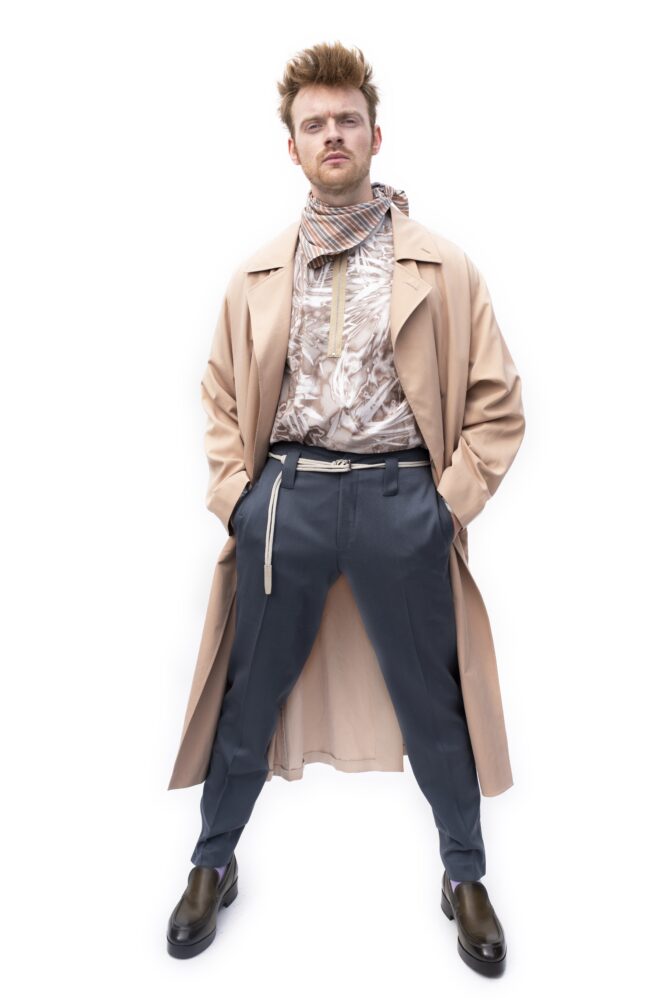
Is she challenging you in new ways?
Yeah she’s challenging me but she’s also liberating me. I remember when we first started and we wanted it to sound like someone else. Now it’s more about invention. It’s about: What have we never heard before? What can we do that’s crazy? There’s very little comparison going on. We’re just making the album and the songs for the sake of that.
You left the family home in LAs Highland Park when you were 21. What did that immediately do for you?
We don’t have controlling strict parents so [before I moved out], I had my own car and a bedroom. I came and went as I pleased but I had a very small amount of square footage. I moved out to a small place in Highland Park. I lived alone for a couple of months. We toured so much that I never got to spend much time there. I discovered all my shortcomings as an interior designer; it was empty walls and one piece of furniture in a room. As soon as there was a mattress, I was sleeping there. Almost a year later my girlfriend and I found the place we live in now. It was just the right time. My mom is so funny still. I saw her at a Grammy rehearsal. I go, “oh hi mom!” And she says, “you act like I’m a stranger.” I said, “no, I’m not acting like you’re a stranger, I’m acting like I see you five times a week, which I do, and it’s not like a reunion after a year of not seeing you!”
Tell me about your musical upbringing in the Highland Park home. What was your earliest memory of music there?
We have an uncle on my dad’s side – Jamie. He’s an accomplished guitarist. He lives in Boston. I have a memory of being very young and him and my folks jamming to some Beatles song. Music was always played in the car. My mom wrote songs our whole childhood so that seemed appealing and interesting. I was entrenched in music.
Were you an introspective kid? What gave you such perspective to write songs when you were young?
I’ve always thought about stuff a lot; my parents, my relationship with my friends, my relationship with childhood, the girls I had crushes on, the experience of mortality when a friend’s parent would die. I have some friends who are liberated of that. They’re easygoing and life rolls off their back. Everything has always been a direct hit on me. Anything that happens I think about it for weeks. My parents always treated me as a human so if I asked a philosophical question they’d give a philosophical answer. They wouldn’t shut me down. Songwriting is a tool for self-expression, and now I write songs for other artists about things that I didn’t live through but I put a piece of my emotional resonance in there.
You clearly have a sensibility when it comes to listening to women’s perspective. Beyond Billie, you’ve worked with Selena Gomez, Camila Cabello, Tove Lo, Halsey…
“A lot of ladies. It’s awesome.”
What is it about working with women and their expression that you’re so interested in?
Without being too generalized, the North Star for me on what I make is to be a fan of music first. Broadly, women are brave and articulate, and willing to show a level of vulnerability that is inspiring to me. My favorite male artists also do that. I don’t feel like I have a lot of masculine energy. My dad didn’t raise me with any level of machismo. When I work with a woman I don’t feel that they’re all that different. I wanna make sure that I give them the space to be themselves. I don’t try to make assumptions.
The Blood Harmony EP came out in 2020. “Can’t Wait to Be Dead” is your comment on social media. Would you rather completely come off socials?
Here’s where I think we’re at. I read Edward Snowden’s book Permanent Record this year. One of the few areas I disagree with him on is that he grew up in the dog days of the internet. He laments the loss of anonymity. He has this attachment to quirky usernames. My response to that is: yeah but you weren’t famous. Nine out of ten people on Instagram and Twitter have a legal name and a photo of themselves. We live on the internet now. We document our lives, we’re interacting with our friends, our relatives, with strangers. The meanest place is Twitter comments and a lot of the time it’s from an account with an American flag as the picture and the name “MajorPatriot.” You know? What the fuck? Who is this? And if it were “Dan Adams from Tennessee” and he had a picture of his face, that dude would not be as brazen.
I’ve had almost no experiences where a stranger has come up to me in person and said, “hey man you suck!” that happens to me every day on the internet. It’s because of anonymity. When people post articles that are untrue there should be consequences for misinformation. We’re ingesting it like it’s truth. I don’t know if a person should be sent to jail but they should have their account revoked.
Did you watch The Social Dilemma?
I did. My qualm with it was that they offered no solution.
Their solution was to get offline.
Right! No one’s gonna do that. Because it’s incredibly stimulating and interesting, and it’s endless. Offer people a solution that’s acceptable. To get off the thing that you’re on all the time, that all your friends are on, that all your dopamine is coming from? It’s never gonna happen. That’s like telling people to stop watching television in the 60s. Accountability will make it better.
You’re making your debut album. Where are you at with it?
I’m halfway through production. The way I work on my own stuff is that I write it all, then I record it. I’m halfway through producing it. Once it comes out I’ll be able to play shows again. I’m thinking of it in terms of what’s going to make a great live experience. I’m having a blast.
What do you want to put into this record that will tell the world what they don’t already know about you?
To me it’s about the delineation of me as an artist versus myself as a producer and collaborator. That has a bit to do with opinion. It’s not always my job to voice my opinion on someone else’s song. It’s my job to support their experience. So my album is very opinionated; it’s my view on life. I want it to be transparent. I wanna be as myself as possible, which is scary and hard to do but necessary. I read this quote the other day: “The irony is that what people are trying to imitate is authenticity.” That’s the truth.
When you’re working on your own, who supports you? Do you play your stuff to your family?
It’s just me. I play it for my loved ones when it’s 99.9% done and their reaction means a lot. But I learned a while ago that if I try to please other people, my music would be less good ‘cause I’m harder to please.
You seem to be an optimistic person. What gives you hope?
I’m passionate. I love making music, I love eating food, I love my dog and I love my girlfriend. Most of my day is full of doing things I have a lot of enthusiasm about, and that keeps me excited to get up every day. On a broad scale there’s a lot of great people in the world working on things that will make the future a better place. Most of the people who are to the detriment of the future are very old and they’ll die soon.
How do you avoid being hamstrung by the success you’ve had?
I feel fortunate to have done a lot of the stuff that was on my proverbial bucket list. That makes me more receptive to things I’m gonna learn. I just wanna know as much as I can.
Who have you learned the most from recently?
I’m working with [producer] Benny Blanco right now. Learning from his approach has changed the way I interact with other artists. He fosters an environment where you feel safe, smart, and comfortable. He lets you sit there and think. One of the things I was guilty of at the beginning of my career was rushing someone who was trying to think up a line. I’d be like, “what about this?” None of those lines are gonna be as good as the line they will think up in ten minutes. @finneas
